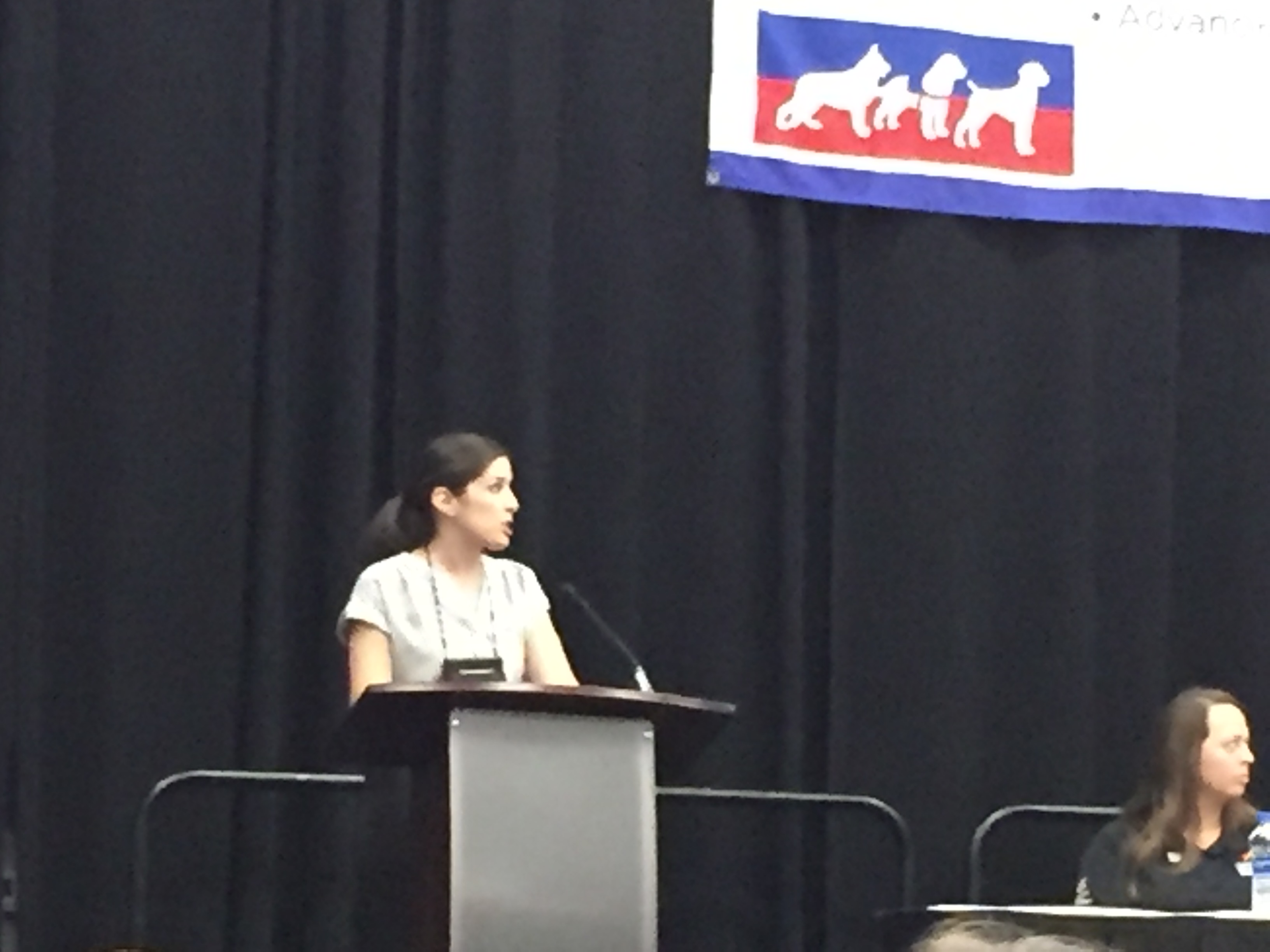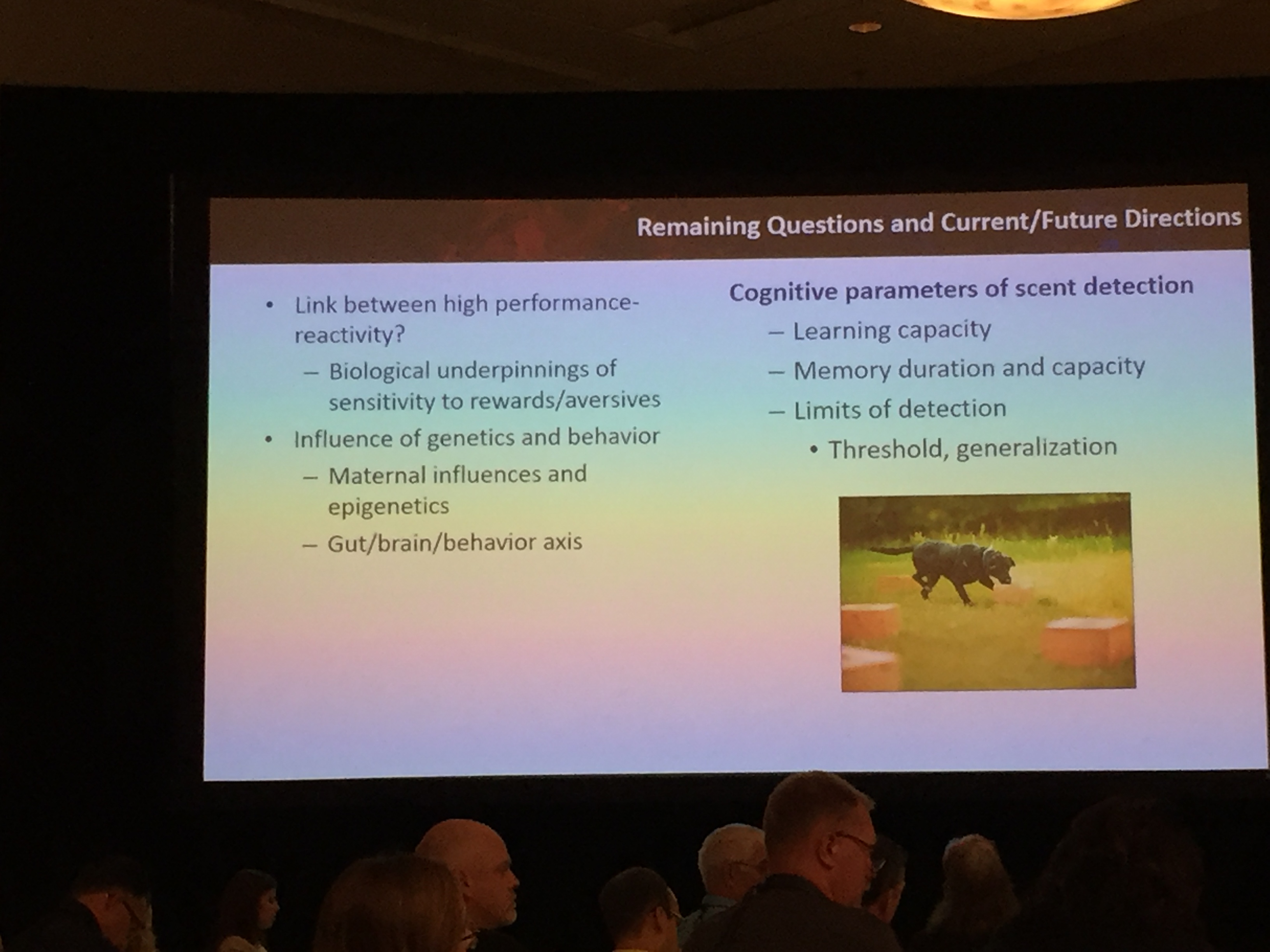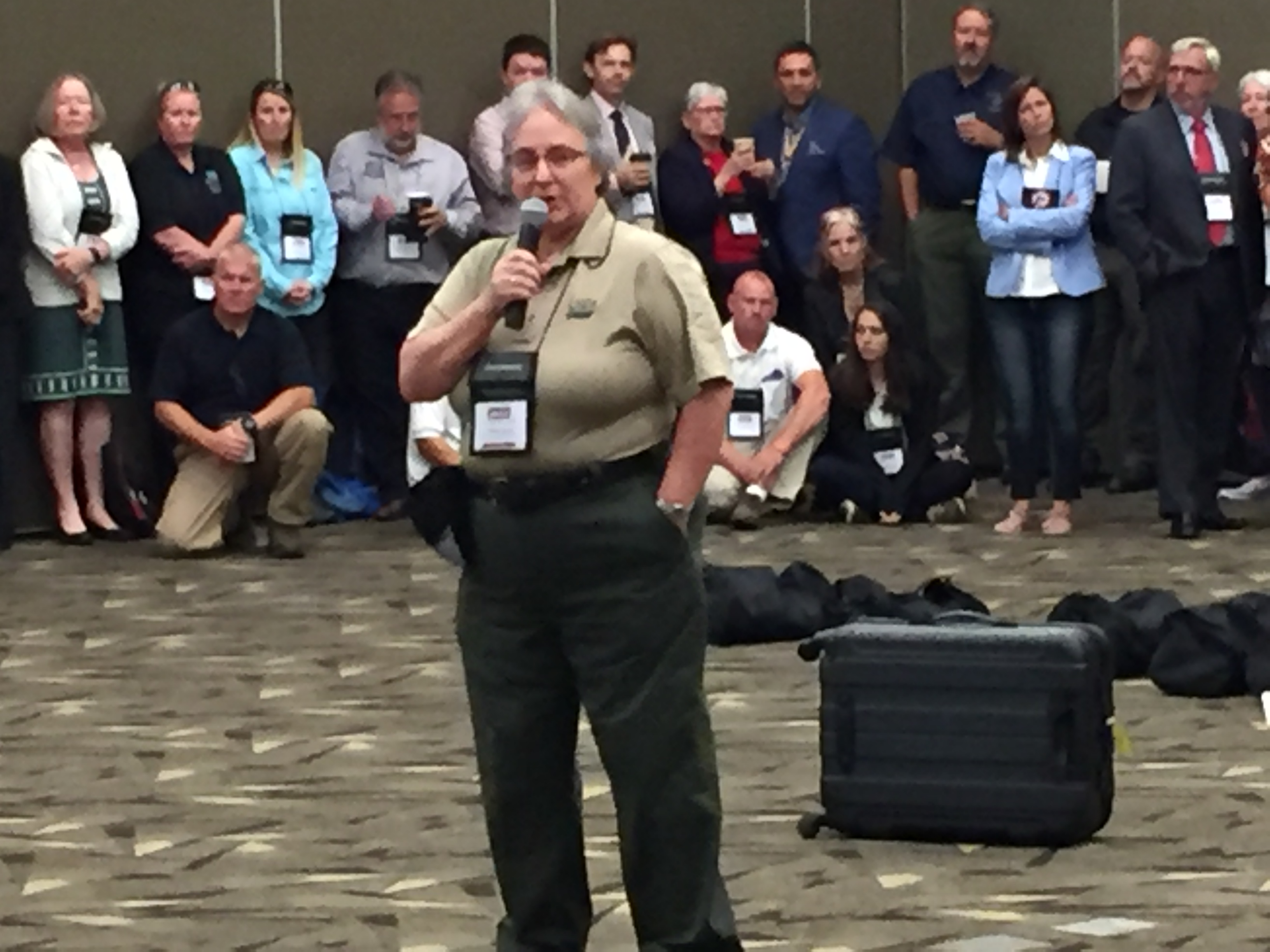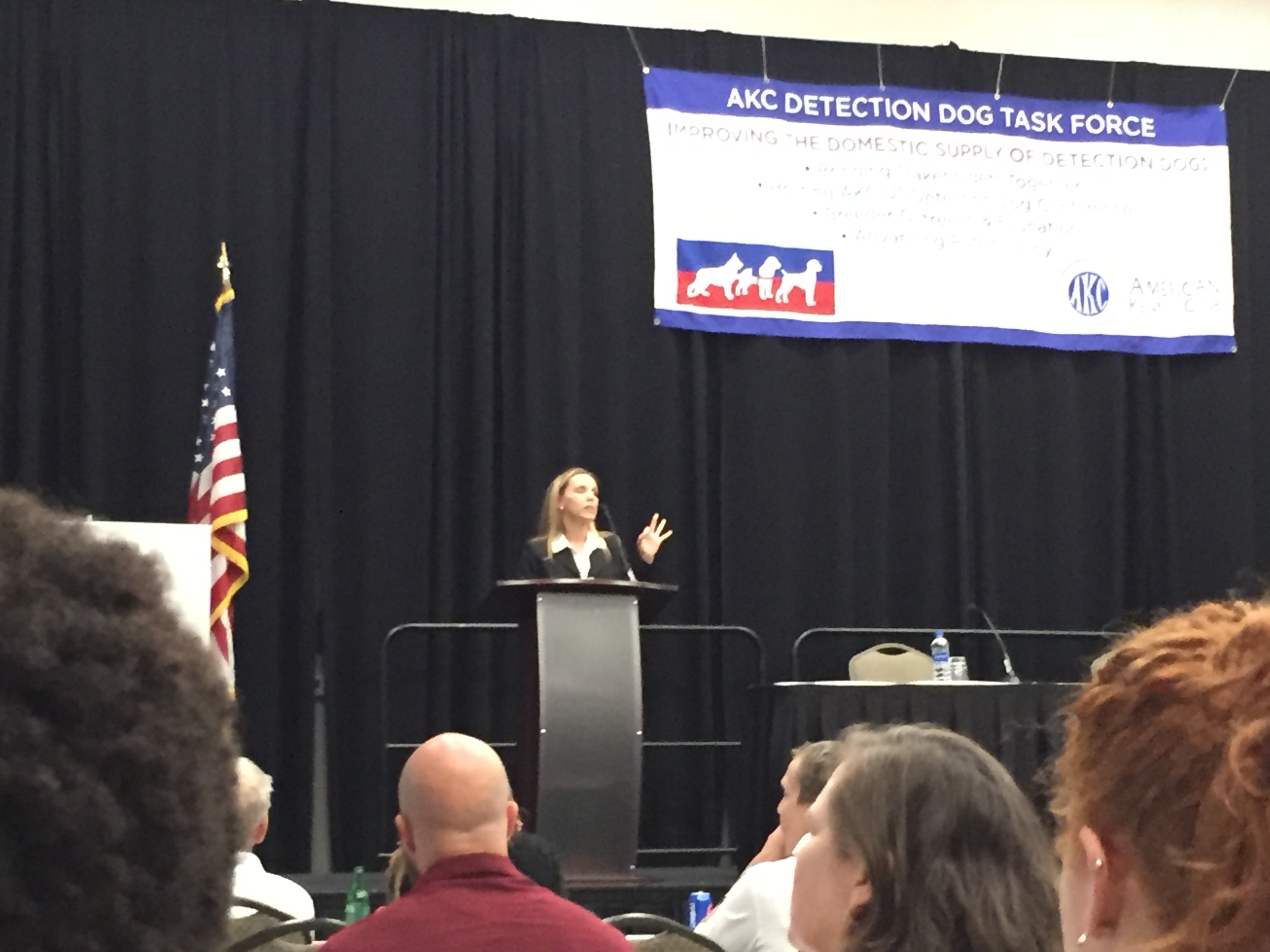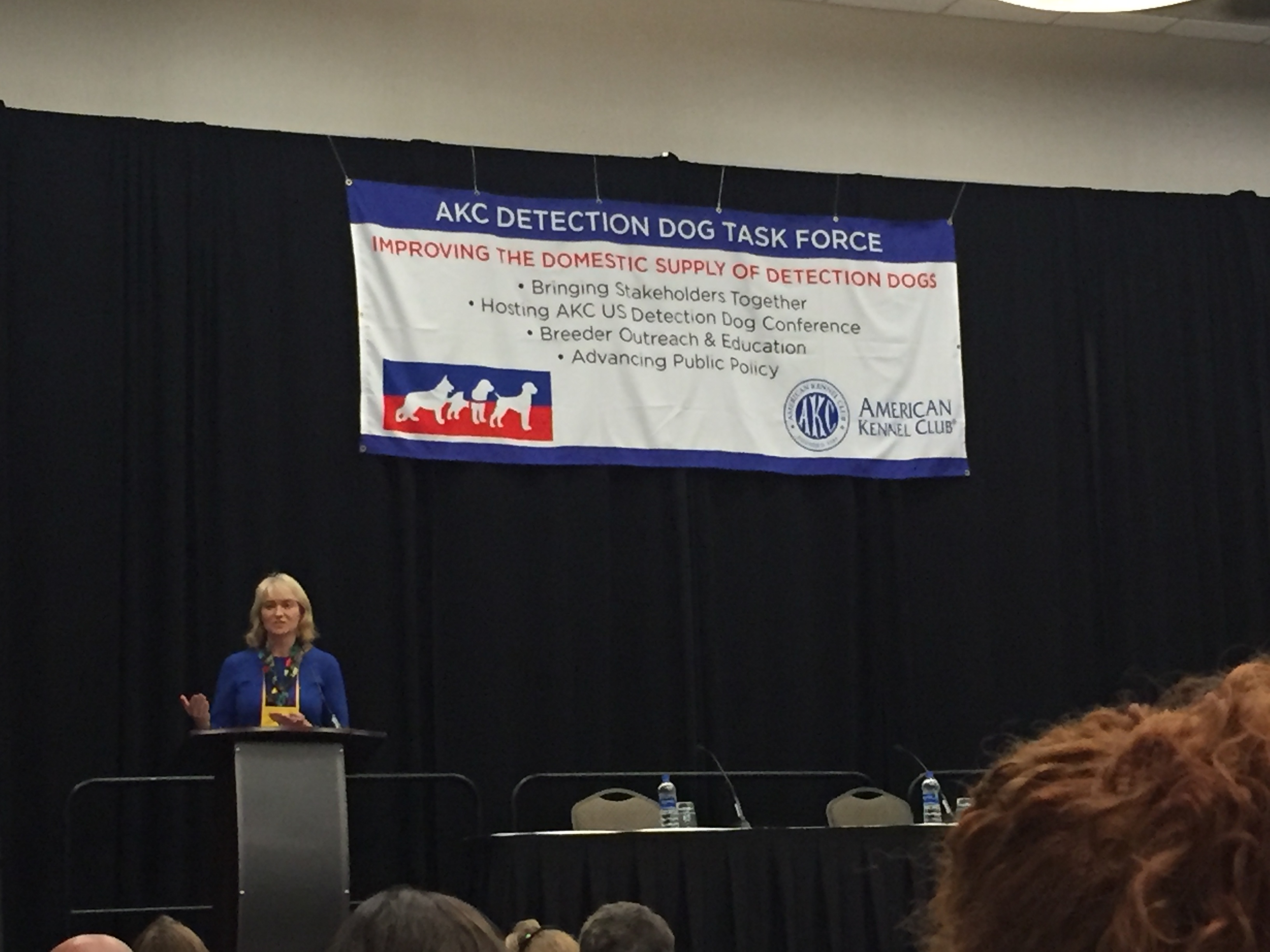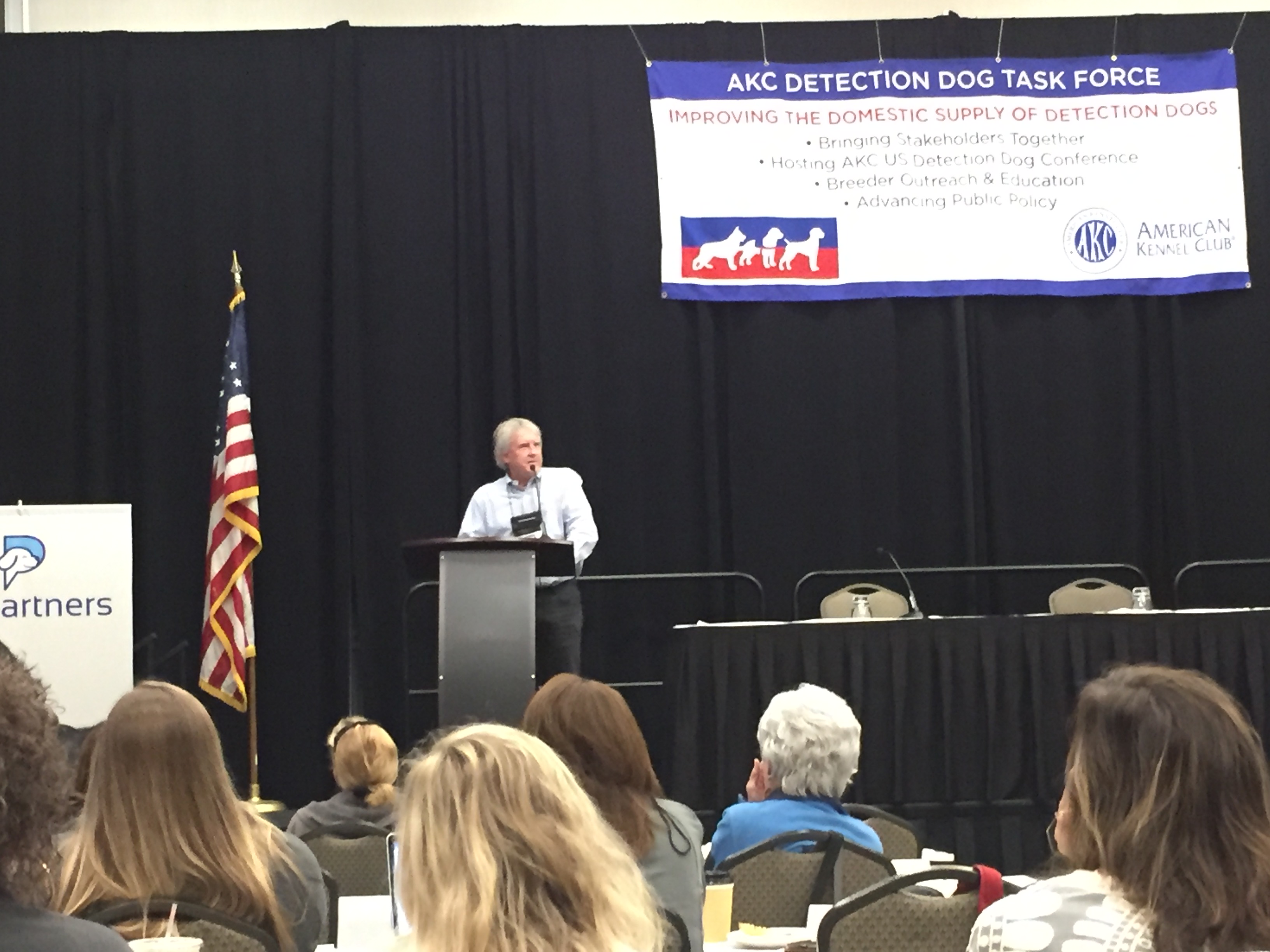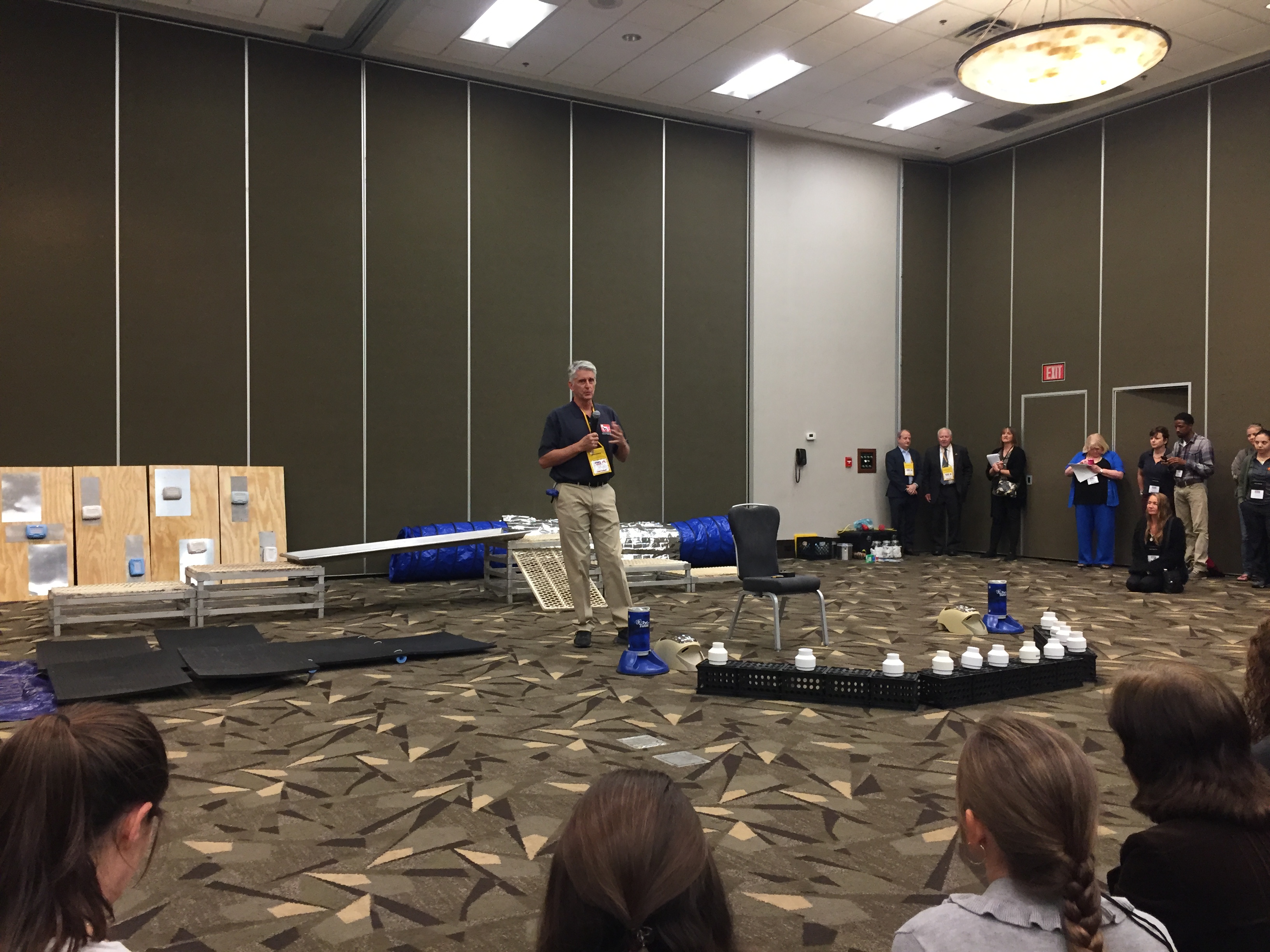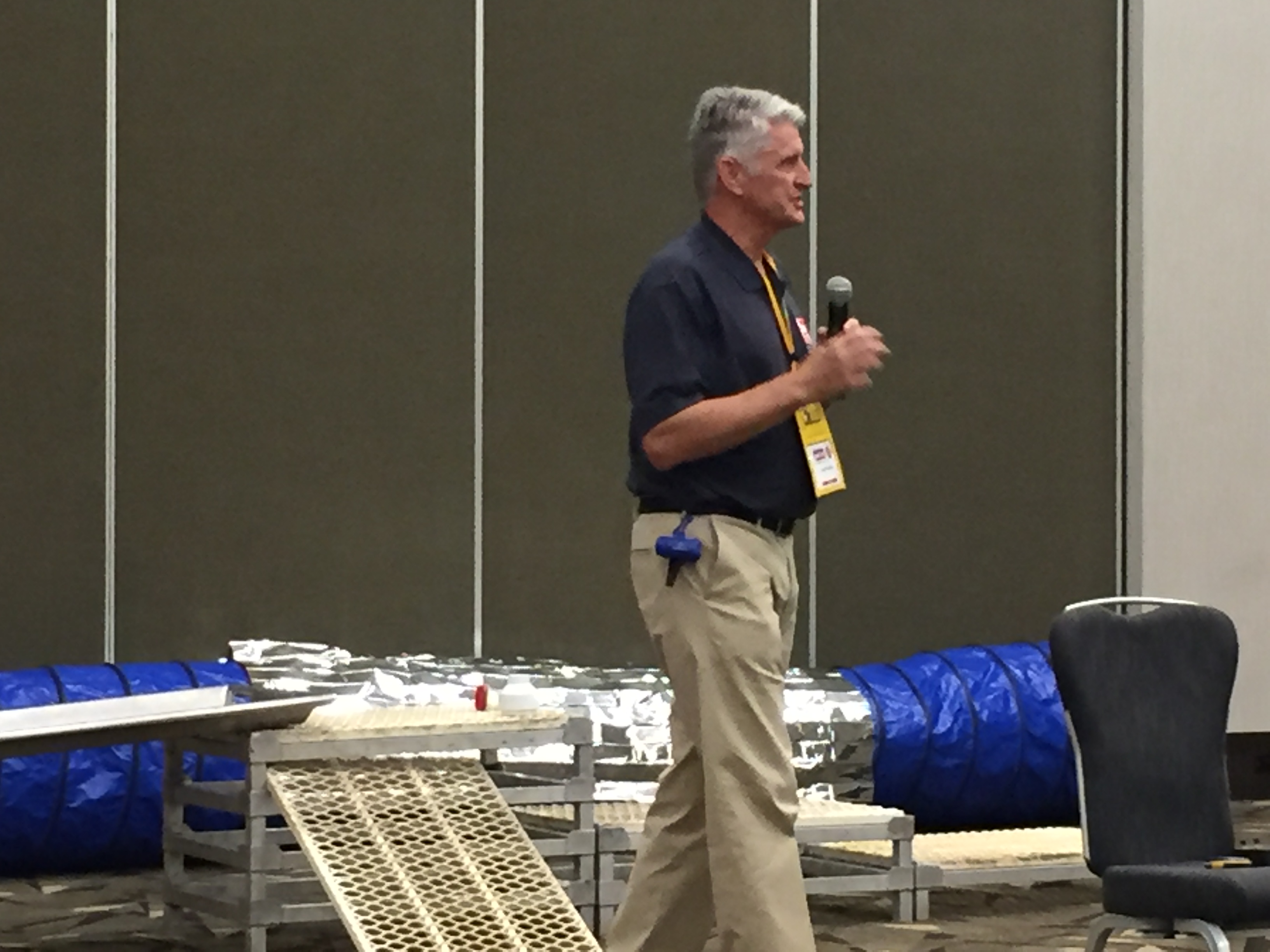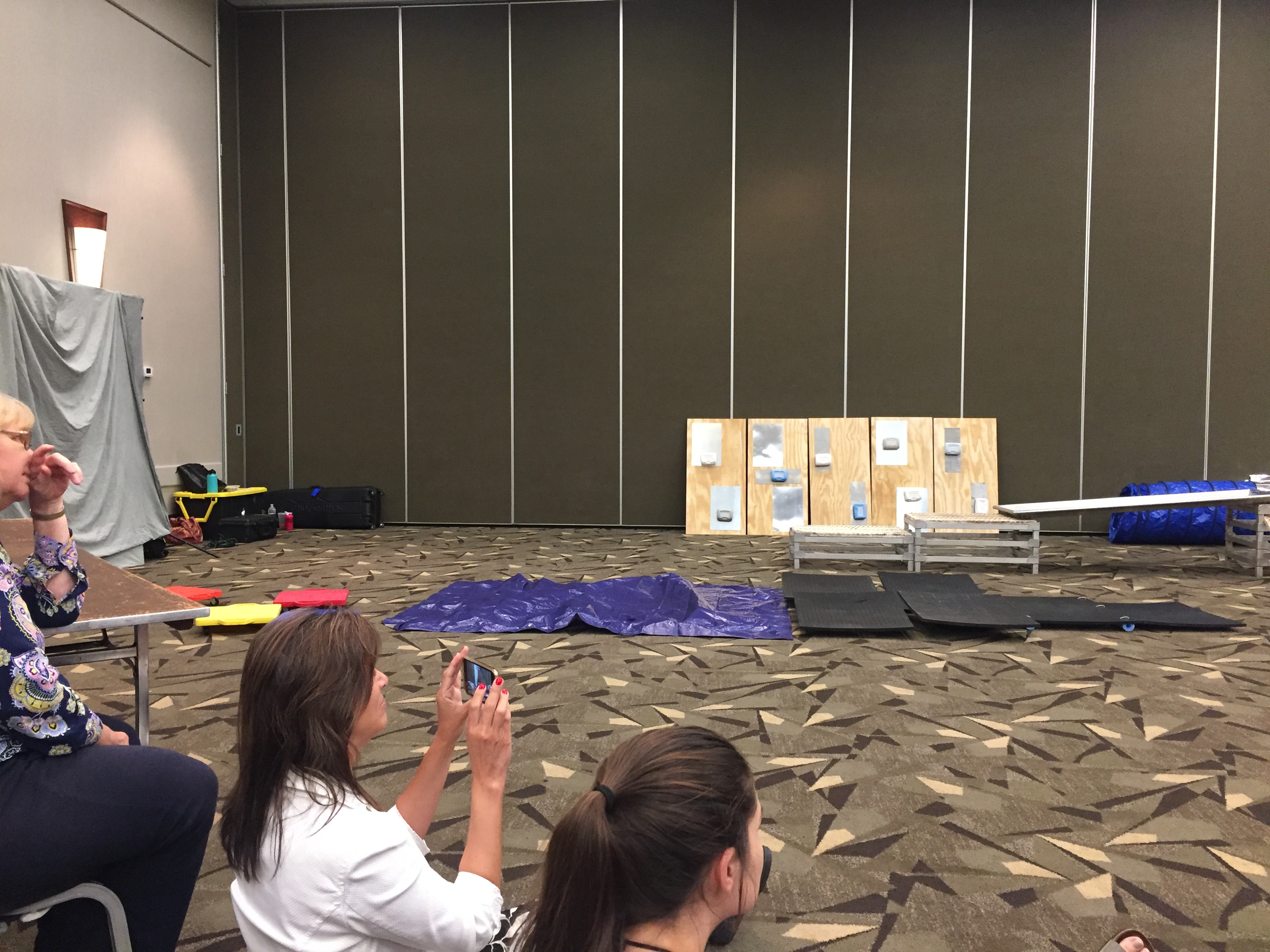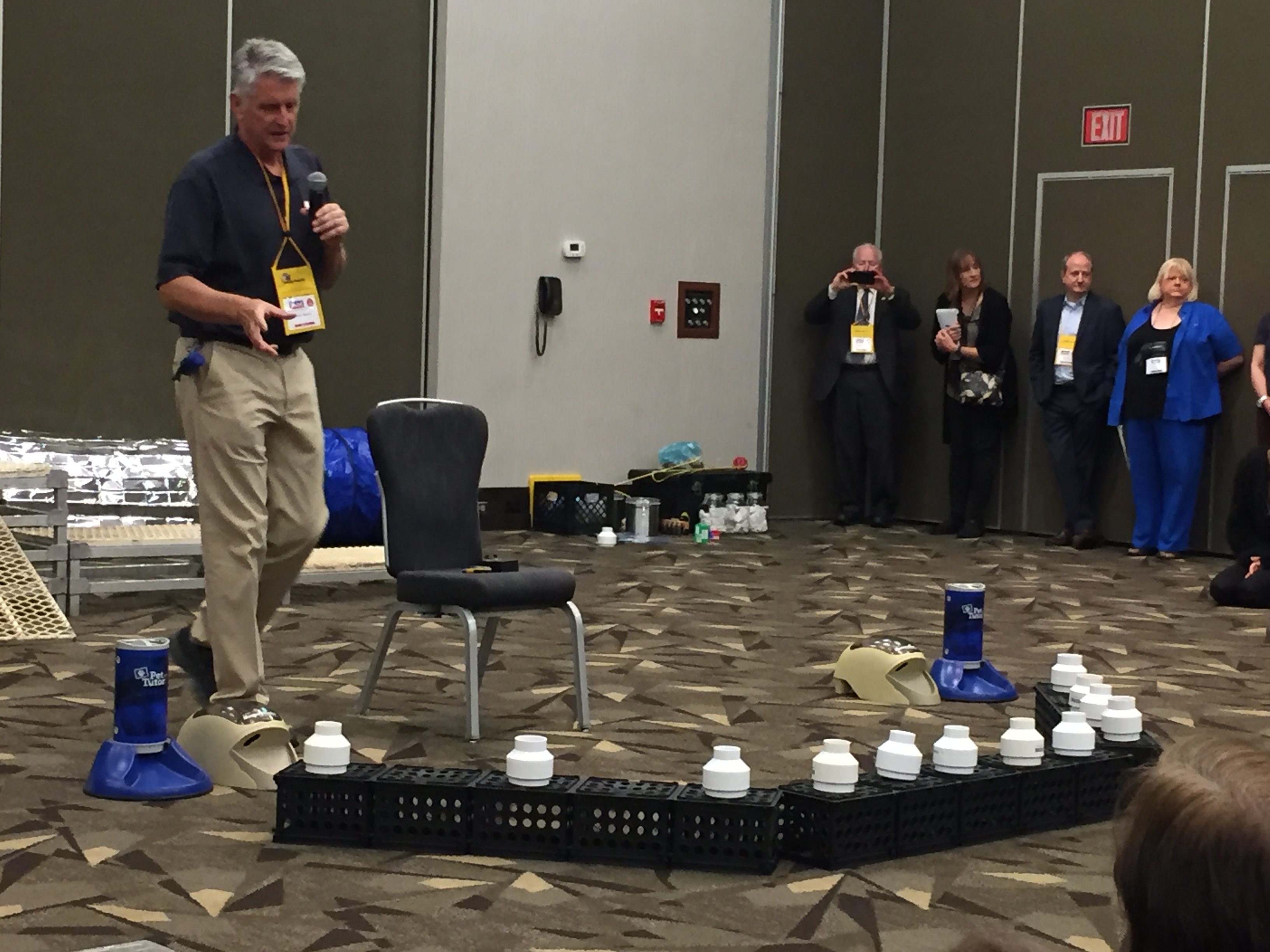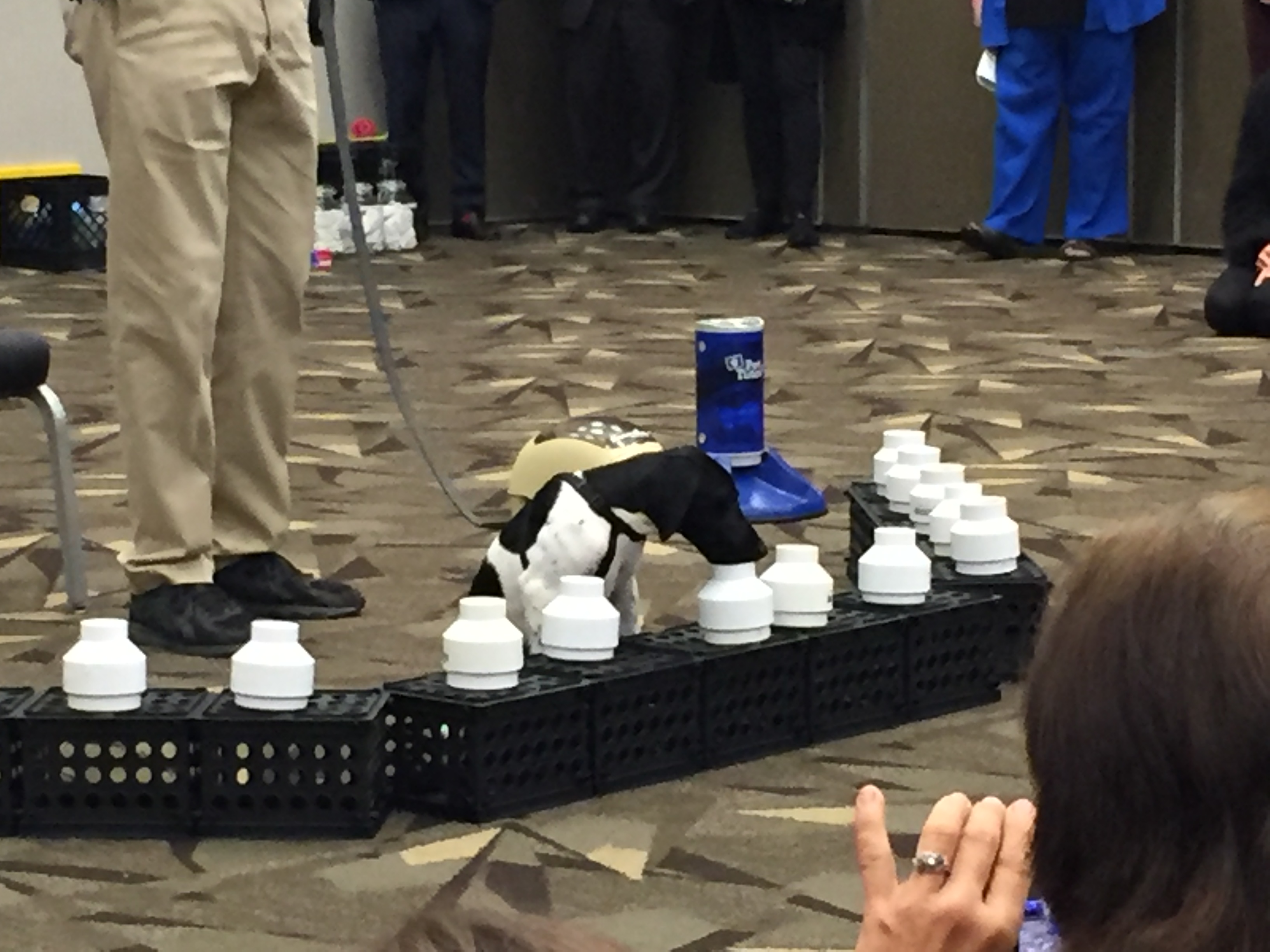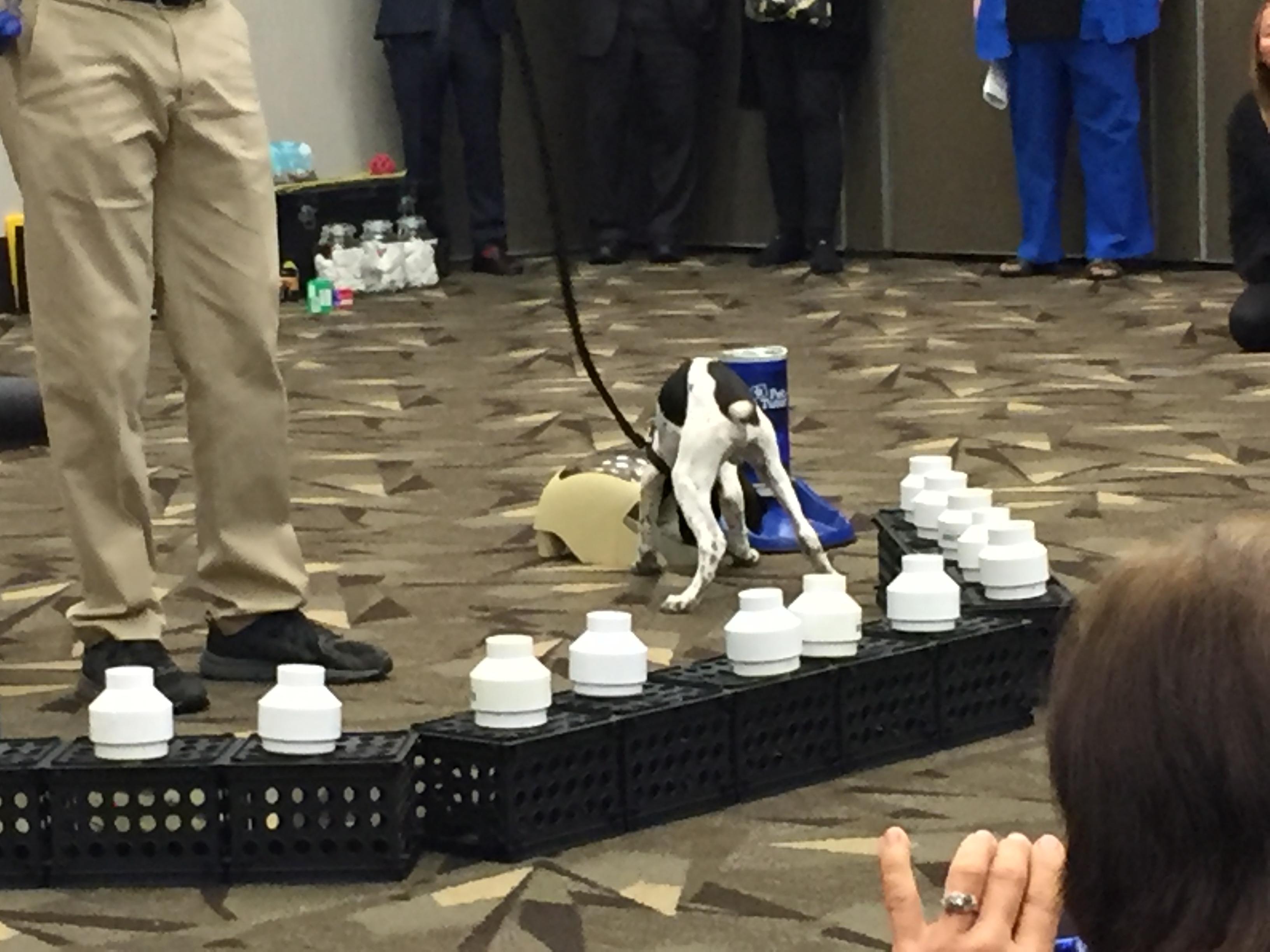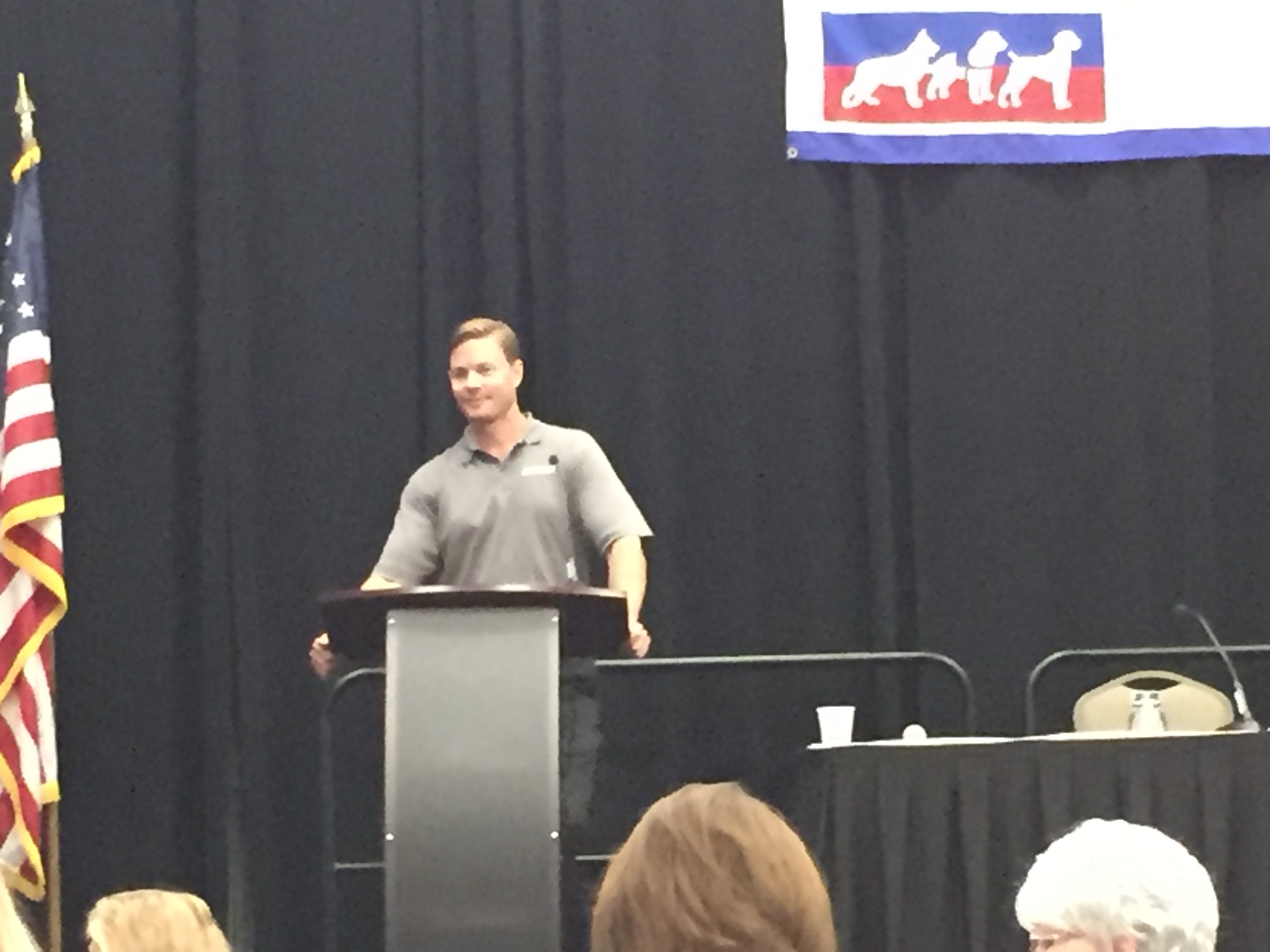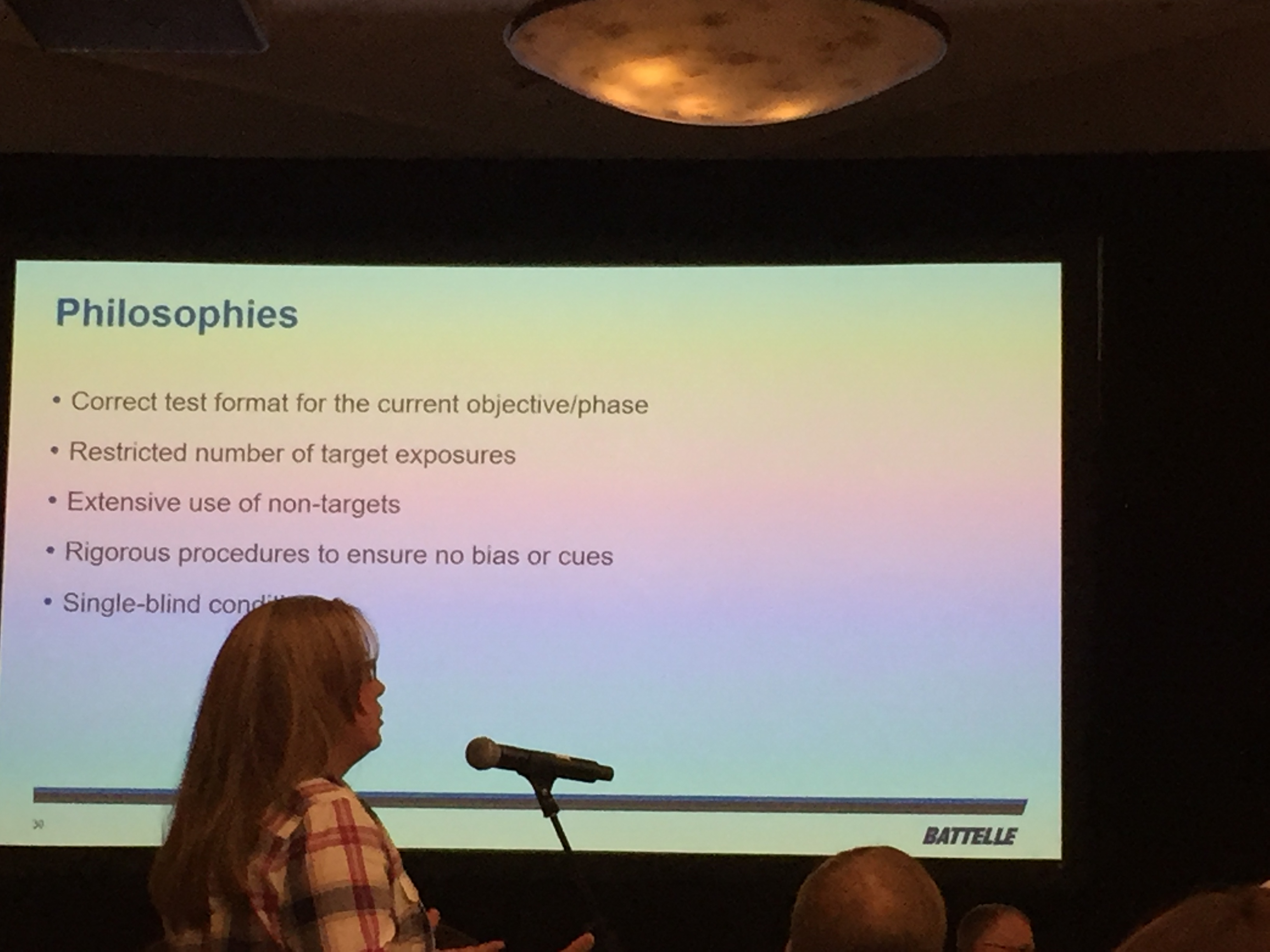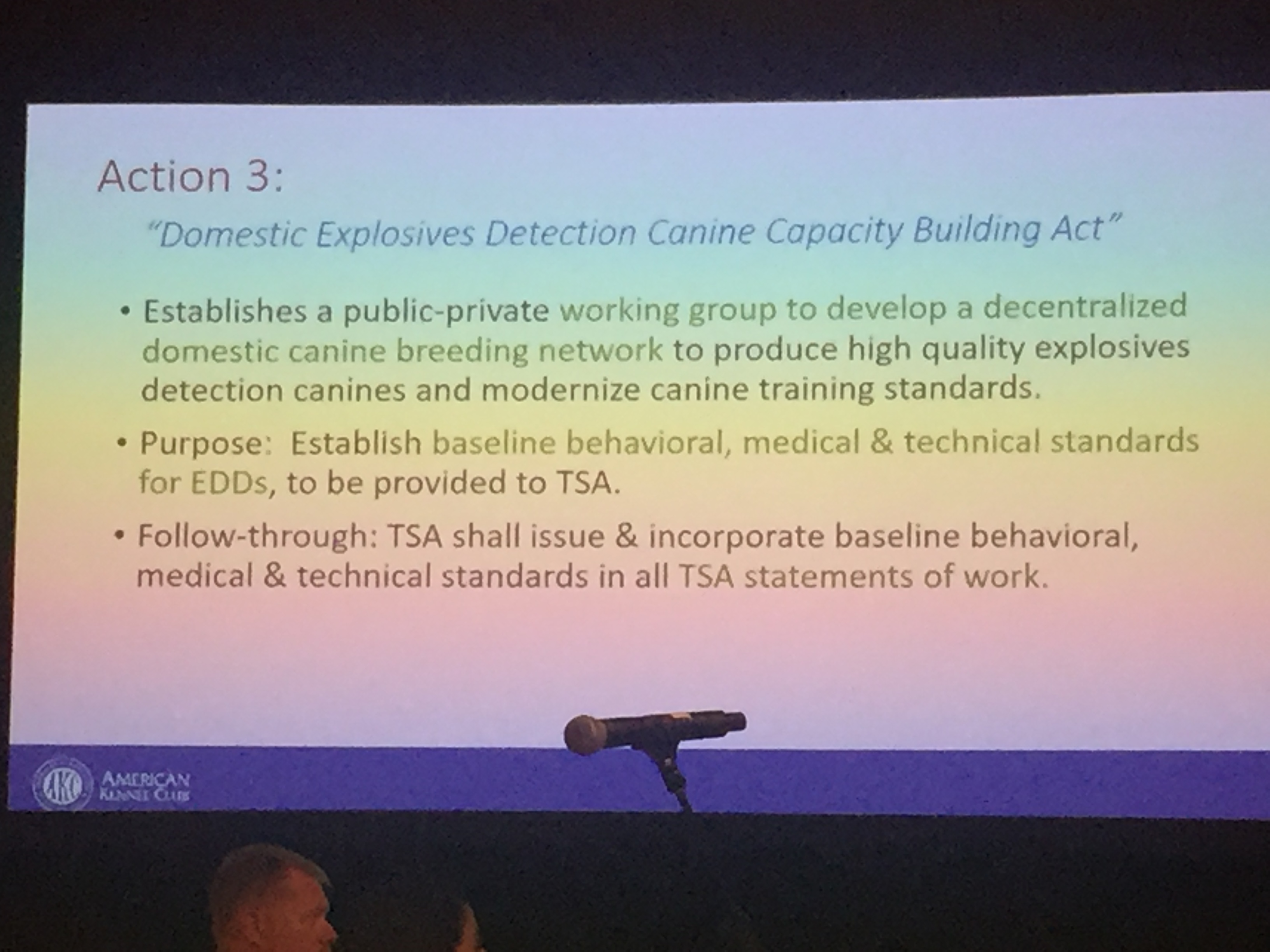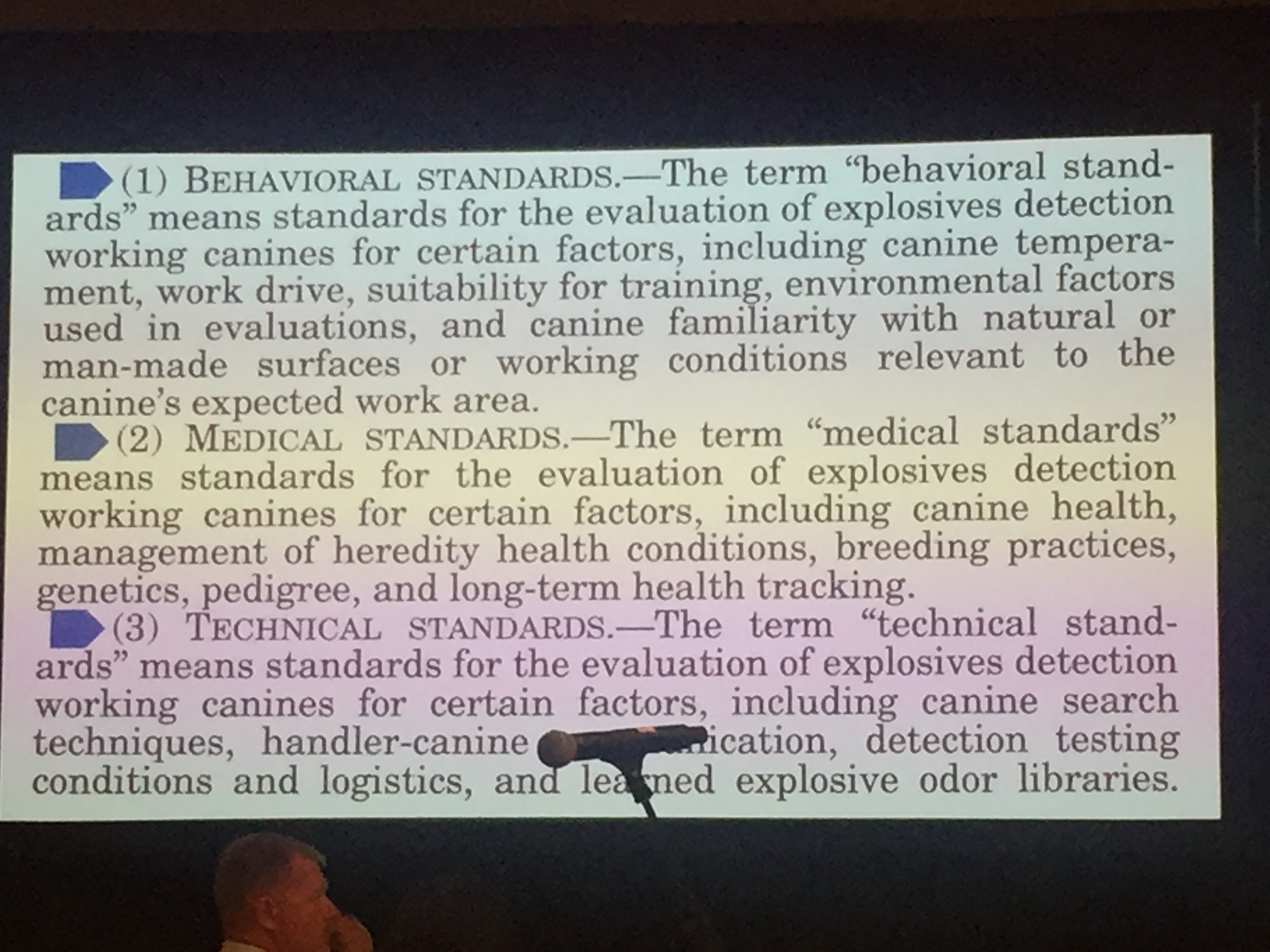CPT’s Mark Spivak Performs as Keynote Speaker at the 2019 AKC US Detection Dog Conference
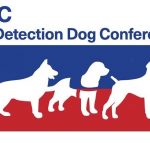
September 1, 2019
The 3rd annual AKC US Detection Dog Conference brought together scientific researchers, veterinarians, military program managers, government officials, law enforcement officers, trainers, breeders, and other stakeholders pertinent to the national security goal of improving the procurement, identification, and training of optimal explosive and agriculture detection dogs. From Aug 27 – 29, 2019, 200 attendees learned, shared, and networked during the sold-out conference held in Durham, NC.
The conference was hosted by the American Kennel Club (AKC) Detection Dog Task Force. The AKC Board of Directors created the Task Force to improve government regulations, vendor quality, and vendor participation, whereupon the military and other government agencies, such as the Department of Homeland Security (DHS) and the Transportation Security Administration (TSA), could validate increasing the percentage of dogs procured and trained domestically. Moreover, the Task Force aims to streamline the vertical integration of the multi-stage operation for preparing single-purpose and dual-purpose dogs- an operation that includes breeding, environmental conditioning, procuring, training, evaluating, and field implementation.
During the opening night banquet, CPT and Dog Star Technologies

CEO Mark Spivak co-presented the keynote speech with Emory University professor and Dog Star Technologies CTO Dr. Gregory Berns. The presentation, entitled “Eight Years and 100 MRI Dogs: Progress in Decoding Dogs’ Brains,” covered the benefits of fMRI in scientific discovery, the process of training dogs to take MRIs without the use of sedation or restraints, key experiments and findings completed by Spivak/Berns, and practical applications that improve training outcomes, training productivity, and human and canine quality of life. Mark discussed improvements in CPT training protocols that resulted from the teams’ research, including revisions in human-dog communication methodology, reward delivery, working and service dog assessment processes, and odor exposure during scent detection tasks. Spivak/Berns also discussed the potential of their MRI protocol for veterinary purposes, especially the early detection of brain and visceral cancer.
Other speakers during the event included:
• Dr. Carmen Battaglia- AKC Detection Dog Task Force Chairman, who provided the welcome and closing speeches.
• Pam Haney, R & D Manager, and Dr. Lucia Lazarowski, Postdoctoral Fellow, from the Canine Performance Sciences Department of the Auburn University College of Veterinary Medicine, who presented “Building a Better Detector Dog: Lessons Learned and Many Questions Remaining.”
• Monica Errico, Training Manager, Jennifer Anderson, Training Specialist, and Joshua Moose, Training Specialist, who provided a demonstration of United States Department of Agriculture (USDA) detection dogs trained to discriminate the scent of insects, animals, and other illegal contraband at airport customs facilities and outdoor agricultural venues.
• Dr. Nathaniel Hall, Assistant Professor- Companion Animal Sciences and Director of the Canine Olfaction Research and Education Laboratory, Texas Tech University Department of Animal Science, who presented “The Critical Role of Research for the Enhancement of Detection Dog Performance.”
• Dr. Erin Perry, Associate Professor, Southern Illinois University, who presented “Managing Gastrointestinal Health of Dogs in the Field: What Goes in Must Come Out.” In addition to communicating research-proven nutritional requirements for deployed dogs, Dr. Perry also presented data regarding the paradox that many high-priced foods supply better marketing than nutritional quality, as demonstrated by the number identified by the FDA and CDC as potentially attributable to canine dilated cardiomyopathy (DCM).
• Chris Shelton, Branch Manager, TSA Canine Training Center, who presented “Working Dog Collaboration by Federal Agencies.”
• Dr. Cindy Otto, Professor of Working Dog Sciences and Sports Medicine, University of Pennsylvania School of Veterinary Medicine, and Executive Director of the PennVet Working Dog Center, who presented “Implementing Early Odor Training.” Dr. Otto discussed research-validated techniques for optimally imprinting odor detection skills with young puppies.
• Dr. Eileen Jenkins, US Army Veterinary Corps, who presented “Olfaction in Working Dogs: Updates and Answers to Key Questions.”
• Tim Baird, Director of Canine Training, VWK9; Mike Dougherty, VP Business Development and Program Director, American K9 Interdiction; and Heather Henderson, VP, Arete Canine, who together were panelists discussing the “Procurement of Detection Dogs.”
• Dr. Robert Gillette, Manager, Sportsvet.com and President, RMG Enterprises, who presented “Optimizing Detection Dog Performance: Addressing the Factors of Psychology, Metabolism, and Structure.”
• Scott Thomas, Consultant, AKC Detection Dog Task Force and former TSA Breeding Program Manager, who demonstrated two young dogs within the AKC Patriotic Puppy Program. Scott demonstrated his preferred methods for environmental conditioning and scent detection imprinting. The highlight was a 14-week old German Shorthaired Pointer puppy who each trial was spot-on indicating the target odor while within a hotel conference room surrounded by 200 unfamiliar persons.
• Kevin Good, Senior Research Scientist, Battelle, who presented “Detection Canine Test Philosophies from an Engineer.”Kevin presented excellent information regarding how to prepare a dog and handler for an evaluation test and how to conduct an unbiased test that accurately determines whether a dog-handler team is ready for field implementation.
• Dr. Elinor Karlsson, Professor, University of Massachusetts Medical School, and Director of Vertebrate Genomics, Broad Institute of MIT and Harvard, who presented “Improving the Performance and Health of All Working Dogs Through Large-Scale, Collaborative Genomics.” Elinor is a dynamic speaker who loves her work. Moreover, she has a gift for explaining the complex science of genetics to both lay persons and PhDs.
• Sheila Goffe, Vice President, AKC Government Relations; Forrest McConnell, Senior Counsel, US House of Representatives Homeland Security Committee; and Mike Williams, AKC Federal Advocate and Principal, MW Capitol Strategies, who participated in a panel discussing “Public Policy to Advance US Detection Dogs: Updates and Opportunities.” The panel was very interesting in disclosing the limited funding Congress has allocated to the procurement, training, and operation of detection dogs. Yet, detection dogs remain the most effective means of preventing human injury from explosives.
In summary, the Conference was outstanding. There were many informative speakers and excellent networks. Moreover, the opportunity to speak in the keynote position further enhanced the reputation of Mark, Greg, CPT, and Dog Star Technologies.

